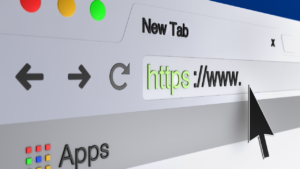Introduction
In an increasingly digital world, cybersecurity is a top priority, especially for freelancers who often work remotely and handle sensitive information. A Virtual Private Network (VPN) is an essential tool that helps protect your data, maintain privacy, and access a secure internet connection—no matter where you’re working. Here’s a closer look at why freelancers should use a VPN and how to choose the right one for your business needs.
Why Freelancers Should Use a VPN
1. Protects Sensitive Data
Freelancers handle various client projects that often involve confidential data, from financial reports to intellectual property. Without a VPN, your internet connection is vulnerable, especially on public Wi-Fi networks. A VPN encrypts your internet traffic, making it nearly impossible for hackers to intercept and read your data.
Example: If you’re working from a coffee shop or airport and connecting to public Wi-Fi, a VPN shields your connection, preventing potential attackers from accessing sensitive client data.
2. Maintains Privacy and Anonymity
A VPN masks your IP address, making it harder for third parties, advertisers, or websites to track your online activities. For freelancers, maintaining privacy is essential, especially if you deal with clients’ proprietary information or regularly browse competitive industry websites.
Benefit: This additional layer of anonymity protects you from targeted ads, tracking, and potentially malicious third parties.
3. Accesses Geo-Restricted Content
Freelancers often need to access region-specific information or content, such as website data, market research, or client-specific content restricted to certain locations. A VPN allows you to connect to servers in various countries, bypassing these restrictions and enabling you to work efficiently from anywhere.
Example: If a client asks you to test their website in a specific country, a VPN lets you “appear” in that region and check the website experience without physically traveling.
4. Safeguards Against Cyber Threats
The internet is filled with cyber threats like malware, phishing, and ransomware. Many VPNs now come with built-in security features, such as malware protection and ad-blocking, which add another layer of defense against these threats. This is particularly important for freelancers who may not have access to corporate-level security systems.
Benefit: VPNs can block suspicious websites and prevent accidental downloads of malicious files, helping keep your system secure.
5. Enhances Remote Work Flexibility
Freelancers are often location-independent and may work from various places, from co-working spaces to different countries. A VPN ensures your connection is secure and stable regardless of your location, letting you focus on delivering quality work without worrying about security.
How to Choose the Right VPN as a Freelancer
With so many VPN options available, it’s essential to select one that meets your needs without breaking the bank. Here are key factors to consider when choosing a VPN for freelancing:
1. Strong Security Features
Security is a primary reason for using a VPN, so choose one with industry-standard encryption, a no-logs policy, and additional security features. Look for VPNs that offer AES-256 encryption, which is the highest level of encryption available and is used by governments and corporations worldwide.
Features to Look For: Military-grade encryption, no-logs policy (which means your activity isn’t recorded), automatic kill switch, and DNS leak protection.
2. Reliable Speed and Bandwidth
Working with slow internet can disrupt your productivity, especially if you’re downloading files, uploading large documents, or attending video calls. Choose a VPN that’s known for high-speed servers and reliable performance.
Tips: Look for VPNs that offer unlimited bandwidth and have a large number of servers in multiple locations to avoid slowdowns during high-traffic periods.
3. Global Server Network
For freelancers who may need to access geo-restricted content, a VPN with a broad global network is essential. The more servers a VPN has worldwide, the more flexible your browsing options will be. Look for a VPN with servers in regions relevant to your work or clients.
Example: If you frequently need to test websites in the United States, Europe, and Asia, choose a VPN that offers a good range of server locations in these regions.
4. User-Friendly Interface
A VPN should be easy to set up and use, especially if you’re not tech-savvy. The best VPNs have intuitive apps that work across devices (laptops, tablets, smartphones) and allow you to connect with a single click.
Recommendation: Test the interface of a few VPNs, or check reviews to see if users find them easy to use. Look for VPNs that support multiple devices with one account.
5. Customer Support and Reputation
Look for a VPN provider with a solid reputation and positive user reviews. Check if the VPN has responsive customer support, as this can be helpful if you encounter any issues while setting it up or using it.
Tips: Reliable customer support options include live chat, email support, and detailed FAQs or guides. Research reviews from freelancers or remote workers for specific insights.
6. Free Trials and Money-Back Guarantee
Some VPNs offer free trials or money-back guarantees, which allow you to test the service without committing fully. This is helpful if you’re trying to determine whether a particular VPN is a good fit for your freelancing needs.
Recommendation: Opt for a VPN with at least a 30-day money-back guarantee so you can test it thoroughly before making a final decision.
Top VPN Recommendations for Freelancers
Here are a few popular VPNs known for their security, speed, and ease of use.
1. NordVPN
Overview: Known for its robust security features, large server network, and reliable performance.
Best For: Freelancers needing high security and a broad range of server locations.
Key Features: AES-256 encryption, no-logs policy, kill switch, and DNS leak protection.
2. ExpressVPN
Overview: A top-rated VPN for speed, ideal for freelancers who need to avoid lags during video calls or data transfers.
Best For: Freelancers who require high-speed servers and easy-to-use apps.
Key Features: Strong security, fast connections, and over 3,000 servers worldwide.
3. CyberGhost
Overview: A user-friendly VPN with a large server network and a focus on streaming and browsing privacy.
Best For: Freelancers who prioritize ease of use and affordability.
Key Features: Dedicated streaming servers, ad-blocking, and a 45-day money-back guarantee.
4. Surfshark
Overview: A budget-friendly VPN that allows unlimited simultaneous connections, ideal for freelancers using multiple devices.
Best For: Freelancers looking for an affordable VPN with solid security features.
Key Features: Unlimited devices, malware blocking, AES-256 encryption.
How to Set Up a VPN for Freelance Work
Once you’ve chosen a VPN, setting it up is straightforward and can usually be done in a few steps:
Download the VPN App: Go to the VPN provider’s website and download the app for your device(s).
Create an Account and Log In: Sign up for an account, then log in on the app.
Select a Server Location: Choose a server location relevant to your work needs (e.g., your client’s country if needed).
Connect: Click “Connect” to activate the VPN. You’re now browsing securely and can start working with peace of mind.
Conclusion
A VPN is a vital tool for freelancers, offering security, privacy, and flexibility to work safely from any location. By choosing a VPN with strong encryption, high speed, and a global server network, freelancers can protect their data, maintain client confidentiality, and access restricted content with ease. Investing in the right VPN not only enhances security but also adds a layer of professionalism and confidence to your freelance business.






